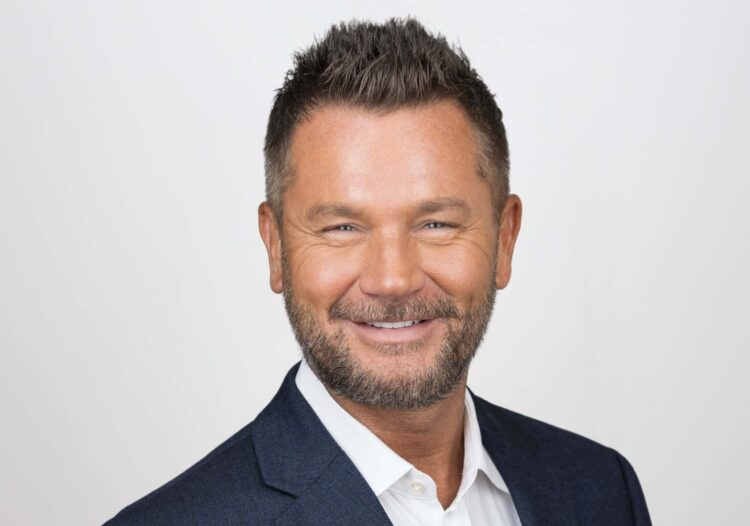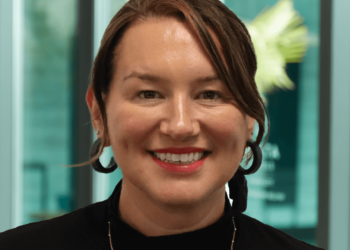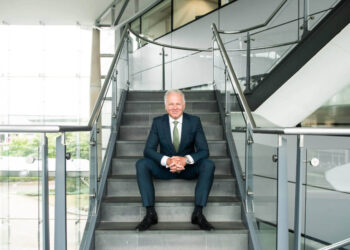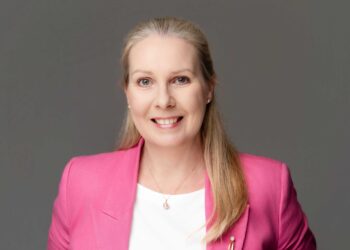Digital Space is among the few midmarket MSPs that has had its [near-term] carbon reduction targets validated by the Science Based Targets initiative (using a streamlined route exclusive to SMEs).
It has committed to reducing scope 1 and 2 GHG emissions by 42% by 2030, and to measure and reduce its scope 3 emissions. It published a carbon reduction plan last month.
In a written article for IT Channel Oxygen, Digital Space CEO Neil Muller said Graphite Capital-backed £60m-revenue outfit‘s sustainability “started from necessity”.
Here he lays out the Graphite Capital-based outfit’s ESG ambitions.
By Neil Muller
Our journey started in autumn 2021 when a few of our customers were clear that “green” partners would be preferred over others. We had done some basic things by then, as good citizens, but this made it a business priority for us. We created an ESG Group and I assigned one of my leadership team to run it who had previously worked for the Carbon Trust. This united a leader with personal motivation with a business priority which is something I like to do.
We needed to get a view of how well we were doing and where the gaps were so we joined the Ecovadis scoring scheme and they ran a detailed assessment on environment, ethics, human rights and sustainable procurement. That first year, we came in the top 50% of the 100,000+ companies that they assess and got a bronze award. This gave us both an emotional boost and a much better understanding of how to improve. Six months later, we re-negotiated our electricity deal, switching it to 100% renewable energy. This had a big effect on our emissions and gave us the confidence to set aggressive targets.
The first of these was a 42% reduction by 2030, in line with the Paris Agreement to keep within 1.5 degrees of global warming. In practice, we beat that target in 2022, eight years ahead of schedule. The second target was to hit Net Zero by 2035, 15 years ahead of the UK government target. I had to consider that one carefully as it gets harder to reduce as you get closer to the target because all of the simple projects have already been done. Thinking about it, we realised that we could always pay for carbon offsets to cover the last emissions and it fitted with my vision of Digital Space as dynamic and innovative that we should take a bold step.
This year, we gained a silver award from Ecovadis and we used the statutory requirement to do an Energy Saving Opportunity Scheme (ESOS) report as a way to define a number of carbon and energy reduction projects. In particular, we are focusing on making our data centres really efficient with a good Power Usage Effectiveness (PUE). Many of our customers, including financial services, regulated and healthcare customers, are keen on UK sovereignty for data and our data centres can both guarantee that and help them reduce their total carbon emissions.
Reducing emissions for our customers is an important part of hitting Net Zero. At present, we do that effectively on the hosting side through our own private cloud and through working with AWS and Azure who are working hard to reduce their emissions. Many customers are surprised to see research that shows how moving to the Cloud can reduce emissions by 80% over typical on-premises hosting. We also sell lots of connectivity, particularly SD-WAN which is a great technology for enabling flexibility and re-use of equipment as the configuration of the network is held in the software. Where we supply laptops to customers, we have partnered with companies that re-manufacture and recondition machines so that the carbon footprint is lower, the lead-time to delivery is faster and the price helps them beat their budget. We also dispose of old kit effectively, recycling as much as possible while ensuring secure erasure.
So our journey started from necessity – we needed to change to keep our biggest customer, but we then realised that we could make a virtue from this and help our customers to benefit. Our focus to date has been on our carbon emissions but I recently signed the UN Global Compact which looks at how our actions impact the UN Sustainable Development Goals, so we’ll be doing more on the ‘social’ part of ESG next year. Already the need to gather data for this has made us question how we can attract a more diverse workforce. Once again, we’re being challenged to improve and I hope we can step up and be bold.













